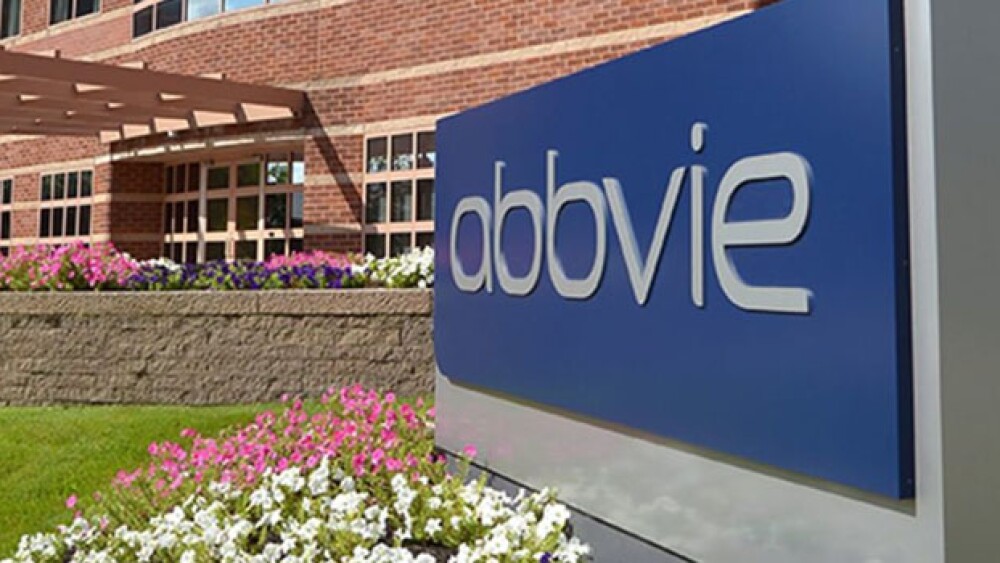AbbVie announced positive top-line data from its Phase III SELECT-COMPARE clinical trial of upadacitinib in moderate to severe rheumatoid arthritis.
AbbVie announced positive top-line data from its Phase III SELECT-COMPARE clinical trial of upadacitinib in moderate to severe rheumatoid arthritis.
The trial evaluated upadacitinib compared to placebo or its own Humira (adalimumab). Upadacitinib met the primary endpoints of ACR20 and clinical remission compared to placebo. All secondary endpoints were also achieved versus either placebo or Humira.
“These results show a significant impact on both signs and symptoms and radiographic progression compared to placebo, as well as improvement in important measures such as ACR response and low disease activity compared to adalimumab,” said Michael Severino, AbbVie’s executive vice president, research and development, and chief scientific officer, in a statement. “We are excited by these strong results which add to the body of evidence that support the potential of upadacitinib to be an important treatment option for patients with rheumatoid arthritis.”
In the study, at week 12, 71 percent of patients receiving upadacitinib achieved an ACR20 response compared to only 36 percent of patients on placebo. And a significantly higher percentage of patients on upadacitinib hit clinical remission compared to placebo. It also showed superiority of upadacitinib over adalimumab based on ranked secondary endpoints comparing both groups. At week 12, 45 percent of patients on upadacitinib achieved showed low disease activity compared to 29 percent of patients receiving Humira.
AbbVie has managed to push back biosimilar competition for mega-blockbuster Humira until 2023, but there has been plenty of non-generic competition. However, AbbVie has projected peak sales of $6.5 billion for upadacitinib if it gets approved, which would go a long ways to alleviating the eventual fading of Humira.
Geoffrey Porges, an analyst with Leerink, wrote in a note to investors, “The total clinical experience of upadacitinib has now increased substantially without demonstrating a major risk of VTEs, which we believe reduces the risk of unexpected asset failure. After the recent failure of Rova-T in third-line small cell lung cancer, and the related drop in AbbVie’s stock value of >20 percent, the risk of subsequent pipeline failure now also appears substantially reduced.”
In earlier trials, AbbVie had indicated two patients died in the Phase III SELECT-BEYOND trial of upadacitinib. One of those patients’ cause of death was unknown. The other had heart failure and a presumed pulmonary embolism. And recently a patient in a low-dose arm of the trial died from a hemorrhagic stroke caused by a ruptured aneurysm. There was also a case of pulmonary embolism in that same group. Investors and the company are no doubt relieved that no similar adverse events were observed in the recent trial.
AbbVie had three high-profile drugs that everyone is watching. In March, one of those, Rova-T for small cell lung cancer and other DLL3-expressing cancers, disappointed in a clinical trial for third-line relapsed/refractory SCLC. Although the company isn’t abandoning the drug and is still being investigated in first- and second-line SCLC, the drug doesn’t look like it will fulfill its original promise.
Upadacitinib was the second, and today’s news appears to validate its original hopes.
The third is AbbVie’s ABBV-066, risankizumab, an anti-IL-23 antibody being studied for multiple inflammatory diseases, including psoriasis, Crohn’s and psoriatic arthritis. On February 17, 2018, AbbVie released new positive data from its pivotal Phase III ultIMMa-1 and ultIMMa-2 clinical trials of risankizumab compared to placebo or Johnson & Johnson’s Stellara (ustekinumab) in severe plaque psoriasis. The company is likely to submit an application for the drug by the end of the second quarter, and if approved, would be launched in 2019.





